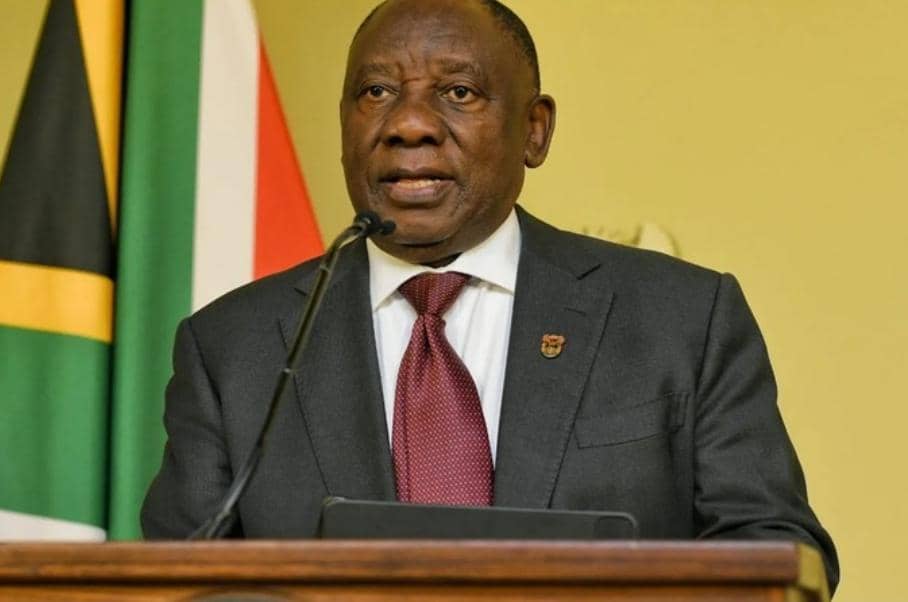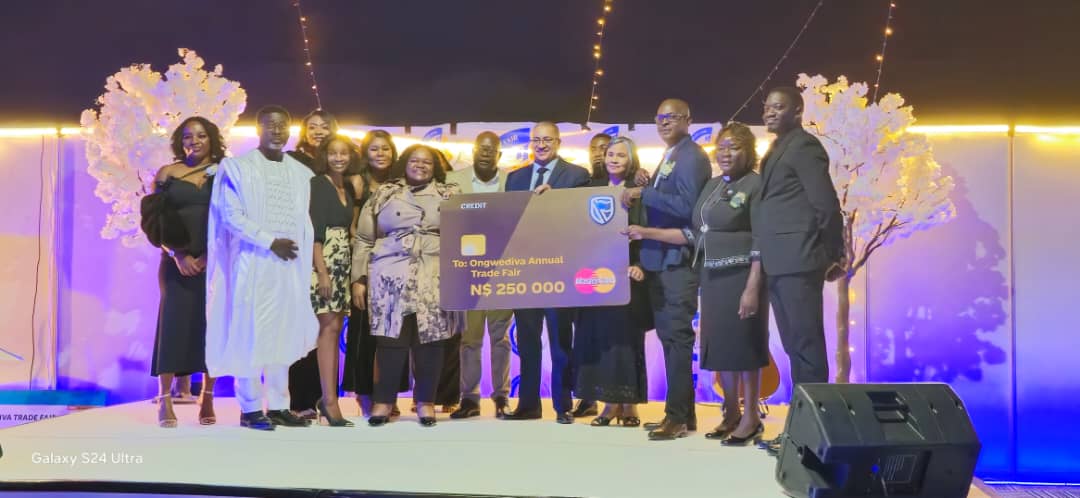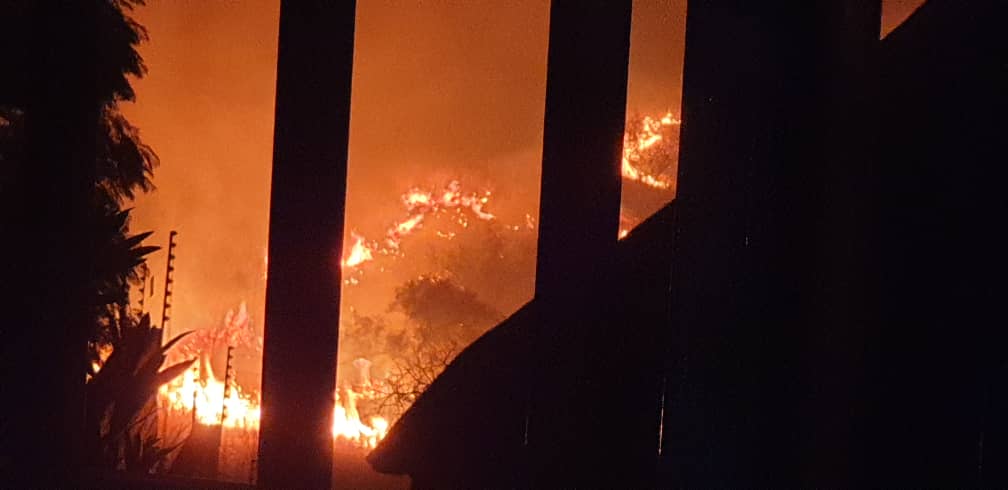…. Windhoek woman encourages regular check-ups after battling breast cancer
Amanda Gaoses (46) first noticed something wasn’t right when she felt a lump in her right breast. She asked her husband to take a look, thinking she may be imagining it, but he also felt it.
After going to a breast screening clinic at Maerua Mall, she was referred to a doctor who diagnosed breast cancer in October 2023.
“Things happened so fast in the month of October, I didn’t really have time to think about it. After my confirmation, I asked around in my family about who had cancer. How was it that I got it? Why me?”
Breast cancer was one of the most common cancers in women in 157 countries out of 185 in 2022, according to the World Health Organisation. However, breast cancer doesn’t just happen in women. Everyone is born with some breast tissue, so anyone can get breast cancer.
For Gaoses, it was as if a switch was flipped in her brain. She operated almost as if on auto pilot.
She says after discussing her diagnosis with husband, they decided that a double mastectomy would be the best course of action.
The sales consultant then told the rest of her family and her closest friends, as well as her employers, who were all very supportive.
“My husband went with me to a few appointments to support me and during my chemo treatments, my children came, my grandchild and people came to bring me snacks and encourage me during the process of my treatment,” Gaoses says.
She credits her strong support system and says she is filled with a sense of gratitude that she has not been alone on this journey.
“That is my support system. My family, my husband, my friends and I am so grateful for them,” Gaoses says.
Maintaining a positive outlook on life in such a situation can seem like an impossible task but Gaoses says she told herself she wouldn’t think about what could happen in the future and decided to take it one one day at a time.
She also says she did not hide away from difficult emotions and would cry when she felt overwhelmed and unwell but she always reminded herself that it was not the end of the world.
“It’s not a death sentence, it’s a path God has bestowed on you and God will not give you a battle you are not strong enough to fight,” she says.
Thinking back to when she found herself pregnant at the age of 14, something no teen ever wants to experience and now having to battle breast cancer, made her realise her own strength because she was able to persevere.
“I went back to school and I overcame that obstacle and went on with my life.”
Gaoses encourages others who may be in a similar situation not to sit in a corner but to allow room for the big feelings that come with discovering something as major as breast cancer.
She says she managed to get through it by not allowing the diagnosis to bring her life to a halt.
“I went on with my life. I went back to work because I am a strong woman, I have the best support system in the world and all I can say is, life goes on. We must go on with life. Breast cancer is not a death sentence.”
Gaoses was recently discharged from the Katutura Intermediate Hospital after undergoing a double mastectomy. She says the most challenging thing for her is the pain, which causes her to move and walk slowly.
“Another thing would be that I cannot take a proper bath yet, as I still have one drainage pipe attached,” she says.
She credits her husband for helping her, especially with taking a bath, because she cannot do it herself.
According to Gaoses, regular medical check-ups are very important. She says she blames herself for not noticing the lump earlier.
“I feel I would have noticed the lump earlier had I paid more attention to my body. I live a very busy life and besides work, I have my household, my husband and grandchild who take up a lot of my time.”
With many women living busy lives and taking care of others, they often forget to take care of themselves. She advised women to make time to regularly evaluate their bodies.
She says especially women over the age of 40 should see their doctors regularly for medical check-ups.
She encourages Namibian women in similar circumstances to stay positive and surround themselves with people that care for and love them.
“Look after yourself. Go to the doctor if you need to, if you notice something unusual in your body, go see a doctor. Don’t be scared,” she says, adding that the earlier cancer is detected, the earlier treatment can start.
She praised staff at public hospitals who guided her through her treatment and walked alongside her on her journey.
“The doctors and nurses only wanted what was best for me, so public is just as good as private. Yes, you must have a lot of patience and in the meanwhile, talk to the people around you and listen to their experiences and you will realise that cancer is not the end of the world,” Gaoses says.
IMPORTANCE OF SELF-EXAMINATIONS
Cancer Association of Namibia (CAN) chief executive Rolf Hansen says that the biggest challenge in Namibia is the lack of awareness, which is why CAN continuously advocates for women to be breast aware.
CAN encourages women to examine their breasts everyday after a bath or when lying down at night.
“We always advocate for women to be 365-days breast aware so that means everyday after you have taken a bath or in the evening when you lay down just to check and gently feel the breast to make sure that your breast has not got any change or lumps,” Hansen says.
Not all lumps are cancerous, says Hansen, some may be due to swelling or inflammation which can often be caused by a woman’s monthly menstrual cycle.
Hansen says in Namibia, CAN has observed that black women may be more prone to getting breast cancer due to the financial inequalities that persist in the country.
“Access to screening, timely diagnosis… but we find that women from the Oshiwambo community are highly plagued by breast cancer… There is a hereditary factor in our Oshiwambo women.”
Hansen says breast cancer is the most prevalent cancer, alongside prostate cancer. These cancers can be difficult to diagnose if patients don’t cooperate.
He encourages Namibians to go to breast clinics to get screened and emphasises that it is a free service at public hospitals where clinics have been set up.
CAN recently dispatched a further donation of core biopsy needles to the various units in collaboration with Standard Bank Namibia, he adds.
“We are also printing new educational materials and relevant forms/stationery through a partnership with Typo Print to ensure our medical teams have the tools needed to help our communities.”
Additionally, CAN’s breast clinic programme in partnership with the Ministry of Health and Social Services is impacting the fight against breast cancer in Namibia. The programme was initiated in 2023 to address the surge in advanced breast cancer cases in Namibia.
The breast clinics are based at the Windhoek Central Hospital, Swakopmund State Hospital, Walvis Bay District Hospital, Onandjokwe Hospital, Oshakati Intermediate Hospital, Rundu Hospital and Katima Mulilo District Hospital.
Patients are encouraged to visit the breast clinics by booking with the out-patient department teams.
Further expansion of this programme to the south of the country is anticipated for the second half of 2024, says Hansen.
*Feni Hiveluah is a journalist at The Namibian. This article is her personal account of her mother’s journey with cancer.
This article has been modified.
Stay informed with The Namibian – your source for credible journalism. Get in-depth reporting and opinions for
only N$85 a month. Invest in journalism, invest in democracy –
Subscribe Now!






